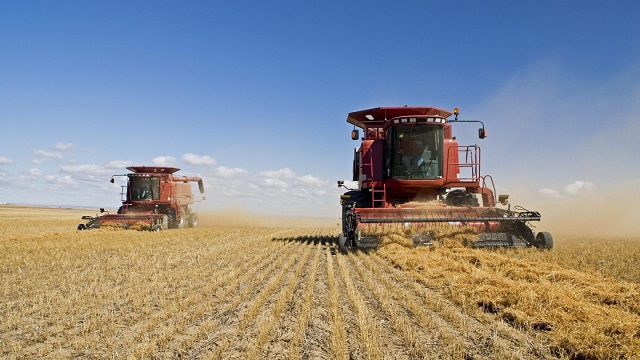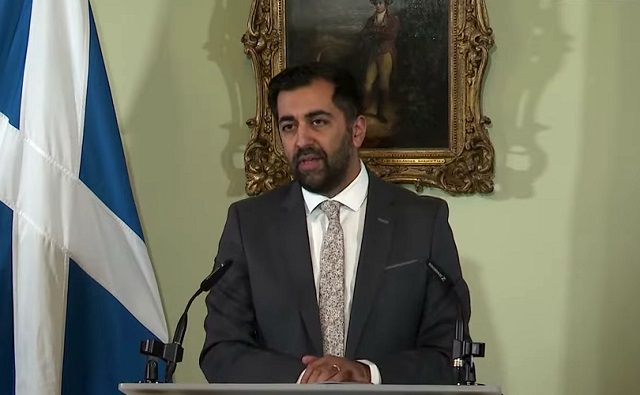Uncategorized
Trump’s Thanksgiving menu includes turkey and grievances

PALM BEACH, Fla. — President Donald Trump used a Thanksgiving Day call to troops deployed overseas to pat himself on the back and air grievances about the courts, trade and migrants heading to the U.S.-Mexico border.
Trump’s call, made Thursday from his opulent private Mar-a-Lago club, struck an unusually political tone as he spoke with members of all five branches of the military to wish them happy holidays.
“It’s a disgrace,” Trump said of judges who have blocked his attempts to overhaul U.S. immigration law, as he linked his efforts to secure the border with military missions overseas.
Trump later threatened to close the U.S. border with Mexico for an undisclosed period of time if his administration determines Mexico has lost “control” on its side.
The call was a uniquely Trump blend of boasting, peppered questions and off-the-cuff observations as his comments veered from venting about slights to praising troops — “You really are our heroes,” he said — as club waiters worked to set Thanksgiving dinner tables on the outdoor terrace behind him. And it was yet another show of how Trump has dramatically transformed the presidency, erasing the traditional divisions between domestic policy and military matters and efforts to keep the troops clear of politics.
“You probably see over the news what’s happening on our southern border,” Trump told one Air Force brigadier general stationed at Bagram Airfield in Afghanistan, adding: “I don’t have to even ask you. I know what you want to do, you want to make sure that you know who we’re letting in.”
Later, Trump asked a U.S. Coast Guard commander about trade, which he noted was “a very big subject” for him personally.
“We’ve been taken advantage of for many, many years by bad trade deals,” Trump told the commander, who sheepishly replied that, “We don’t see any issues in terms of trade right now.”
And throughout, Trump was sure to congratulate himself, telling the officers that the country is doing exceptionally well on his watch.
“I hope that you’ll take solace in knowing that all of the American families you hold so close to your heart are all doing well,” he said. “The nation’s doing well economically, better than anybody in the world.” He later told reporters “nobody’s done more for the military than me.”
Indeed, asked what he was thankful for this Thanksgiving, Trump cited his “great family,” as well as himself.
“I made a tremendous difference in this country,” he said.
But Trump continued to warn about the situation on the southern border as he took questions from reporters, pointing to the caravans of Central American migrants that have been making their way toward the U.S. and warning that, “If we find that it gets to a level where we lose control or people are going to start getting hurt, we’re going to close entry into the country for a period of time until we get it under control.”
He said he had the authority to do so by executive order and claimed he’d already used it earlier this week. “Two days ago, we closed the border. We actually just closed it, said nobody’s coming in because it was just out of control.”
By no means did he seal the border with Mexico. Officials did shut down one port of entry, San Ysidro, in California, for several hours early Monday morning to bolster security because of concerns about a potential influx of migrant caravan members. They closed northbound lanes into the U.S. and reopened most of them before the morning rush.
Trump’s border threat came days after a federal judge put the administration’s attempts to overhaul asylum rules on hold. Courts have also blocked several versions of the president’s travel ban as well as his attempt to end a program that allows young immigrants brought to the country illegally as children to live and work in the country.
Trump probably could close the entire southern border by order, at least temporarily, invoking national security powers. But doing so could cause extraordinary damage to bilateral relations as well as to cross-border commerce between the U.S. and Mexico, its third largest trading partner. It would not necessarily stop migrants from coming either; Trump would have to contend with the same asylum laws already vexing his efforts to harden the border.
Among other subjects the president touched on in his question-and-answer session with the press:
—Trump disputed reports the CIA has concluded that Saudi Arabia’s crown prince was responsible for journalist Jamal Khashoggi’s killing. “The CIA points it both ways,” said Trump. “Maybe he did, maybe he didn’t.”
—Asked who should be held responsible for killing, Trump responded that, “Maybe the world should be held accountable ’cause the world is a vicious place.”
—Trump said he’d be interviewing candidates for potential openings in his administration — but wouldn’t say for what positions.
“I’m very happy with my Cabinet and the people working for me and for us. … They’re absolute stars.” But, he said, “there’s always a lot of change. I’ll probably be changing a couple.”
—Trump would not discount the possibility of a partial government shutdown over lawmakers’ refusal to allocate billions of dollars for his promised border wall. “Could there be a shutdown? There certainly could, and it will be about border security, of which the wall is a part,” Trump said
—Trump said he’d spoken with his daughter Ivanka following news she’d sent hundreds of emails from a private address while serving as a senior White House adviser. Trump said she was “very innocent” and that situation was very different from the one he’s said his 2016 rival Hillary Clinton should be in jail for.
—He defended his acting attorney general, Matthew Whitaker, calling him “a highly respected person” whom the press had treated nastily.
—He complained about the military’s use of new electromagnetic catapult technology instead of steam in the new Navy aircraft carriers, telling a Navy officer that, “unfortunately, you have to be Albert Einstein to really work it properly.” The officer rebuffed him. “You sort of have to be Albert Einstein to run the nuclear power plants that we have here as well. But we’re doing that very well,” he said, advising the president to “go electromagnetic.”
Trump later
He and his family capped the day with several hundred dues-paying members and their guests at a Thanksgiving feast in Mar-a-Lago’s opulent ballroom that included the usual fixings, along with chilled seafood, Chilean sea bass and braised short ribs.
___
Associated Press writer Colleen Long in Washington contributed to this report.
___
Follow Colvin on Twitter at https://twitter.com/colvinj
Jill Colvin, The Associated Press
Uncategorized
RCMP recruitment failure has Alberta advocacy group calling for Provincial Police Service

News release from Free Alberta Strategy (A Strong And Sovereign Alberta Within Canada)
“Make no mistake, we are paying for these services that we aren’t receiving. Alberta’s taxpayers are paying tens of millions of dollars for nearly 400 vacant RCMP officer positions – for boots that are not on the ground.”
A recent report from the Royal Canadian Mounted Police (RCMP)’s independent Management Advisory Board had findings that are nothing short of alarming:
“Federal policing has now arrived at a critical juncture of its sustainability, which present risks for the national security and safety of Canada, its people, and its interests,” says the report.
After over a year of diligent study, the Board has been tirelessly firing off flares, signalling to all who will listen: the very foundation of our national public safety apparatus may be at risk of faltering.
This is doubly problematic because, as you well know, the RCMP is also responsible for boots-on-the-ground policing in large parts of the country, including many rural and remote areas – including in Alberta.
Rural crime has been a longstanding issue in Alberta, and social disorder continues to make headlines nightly.
Alberta Minister of Public Safety, Mike Ellis, took to social media platform X (formerly known as Twitter) to express his opinion:
“The independent report finds the RCMP has struggled in recent years to recruit and retain regular members, a problem that’s particularly acute in federal policing. This is not about the hard-working men and women on the frontline: they are doing everything they can. The reality is the RCMP do not have enough officers to police communities in Canada effectively.”
Ellis has been ahead of this story for months now.
In March, Ellis stated that:
“… on average, Alberta has an RCMP officer vacancy rate of 20 per cent. This means that Alberta is only being served by 1,522 of the 1,911 RCMP officers that the federal government has authorized for Alberta.”
“Make no mistake, we are paying for these services that we aren’t receiving. Alberta’s taxpayers are paying tens of millions of dollars for nearly 400 vacant RCMP officer positions – for boots that are not on the ground.”
The consequences of this capacity crisis are far-reaching.
Not only does it jeopardize the safety of Albertans, but it also undermines the credibility of Canada’s federal police force on the international stage.
With limited resources and personnel, the RCMP’s ability to address pressing national and global security concerns is severely compromised.
The Management Advisory Board, created in 2019 by the federal government to provide external advice to the RCMP commissioner, set up a task force in the fall of 2022 to study the federal policing program.
Overall, the report says budget and personnel shortfalls have left the RCMP “operationally limited,” restricting the number of cases it can take on annually.
Here are some more highlights from the report:
“Canada and its people have already begun to see the repercussions of the federal policing program being stretched thin.”
“Federal policing’s overall eroding capacity may have implications for the credibility of Canada’s federal police force and its investigations on the international stage.”
“Ultimately, this may influence Canada’s overall approach and standing in international politics, including its ability to advance global priorities.”
Clearly, we cannot afford to wait any longer.
Municipalities can ease the burden on our national security services by establishing municipal policing.
Several cities in Alberta already have their own police authorities, and the provincial government is providing funding for others interested in exploring this option.
Grande Prairie is already in the process of establishing their own municipal police service.
No word on how many other municipalities have taken the government up on their offer.
Unfortunately, President of Alberta Municipalities Tyler Gandam (also Mayor of Wetaskiwin) is featured prominently on the National Police Federation’s “Keep Alberta RCMP” website.
Interestingly, the Keep Alberta RCMP website doesn’t mention the fact that the advisory board even exists.
It doesn’t mention the report.
The notion that our federal policing infrastructure teeters on the brink of instability while Gandam appears to be asleep at the wheel, is deeply disconcerting.
The safety and security of Albertans must remain our top priority.
We cannot afford to wait any longer.
The time has come for the province to take swift and decisive measures to bolster policing capabilities in Alberta.
It’s time for Alberta to seriously consider the establishment of an Alberta Provincial Police Service.
It has been one of the core tenets of the Free Alberta Strategy.
If you agree, please reach out to your municipality and ask them to take steps to protect your community.
Together, we can keep Alberta safe.
Regards,
The Free Alberta Strategy Team
P.S. We’re hoping you’ll consider contributing to our cause. Your generous donation helps us make a positive impact in our community. No need to worry about any hold-ups or threats here. We’re just passionate about making a difference, and your support goes a long way in helping us achieve our goals.
Uncategorized
Making Alberta a geothermal energy leader

Eavor announces it’s the #1 geothermal energy startup company in the world – January 2024
Alberta is creating Canada’s first geothermal test site to advance drilling innovation, reduce emissions and create jobs.
Geothermal energy uses naturally occurring heat within the earth to heat water and buildings and generate power, with few emissions or environmental impacts. Alberta has vast pockets of heat below ground, making the province Canada’s geothermal leader, but testing and developing new technologies can be a barrier for many companies. Unlike the United States, Japan and other countries, Canada does not currently have an open-access test site to help spur innovation.
Alberta is taking the first steps to create a new Alberta Drilling Accelerator. This groundbreaking facility would be the first of its kind in Canada, establishing Alberta as a global hub for geothermal technology. This will drive new innovations in geothermal and other clean energy projects that can reduce emissions and power communities around the world.
To kick-start the project, the Alberta government is investing $750,000 to conduct a feasibility study led by Calgary-based Eavor Technologies and other stakeholders. The study is the first step in assessing the proposed facility. It will include identifying a site, business planning, research on the governance model, an economic impact analysis and stakeholder engagement that will lay the groundwork for the initial planning stages of the project.
“Alberta has been a global energy leader for more than a century, renowned for our skilled workforce, innovation and one of the largest oil and gas reserves on the planet. The proposed Alberta Drilling Accelerator presents enormous potential to help our province lead the next wave of energy projects here at home and around the world that reduce emissions, create jobs and enhance energy security.”
The Alberta Drilling Accelerator would help companies test out and develop new geothermal drilling techniques or technologies to reduce emissions and drive growth across the clean energy sector. It would be an open-access, technology-agnostic drilling test facility capable of drilling in challenging environments, including deep depths, high temperatures and different rock types.
The accelerator also would help speed up the development of carbon capture, utilization and storage; helium; critical minerals; and other clean technologies and commodities that rely on Alberta’s drilling sector. All of this helps attract investment and bring new technologies to scale in Canada.
“With cumulative geothermal investment poised to reach $1 trillion by 2050, a geothermal arms race is very much underway to commercialize novel drilling techniques that accelerate geothermal development – exhibited by testing facilities in the United States, China and Iceland. As Canada’s first geothermal test bed, the Alberta Drilling Accelerator will help bring geothermal technologies to scale, supporting companies like Eavor. We commend the Government of Alberta for this bold initiative.”
“We are proud to witness Eavor, a CDL-Rockies alumni company, create new opportunities for innovators like themselves to advance the adoption of energy transition technologies like geothermal. The Alberta Drilling Accelerator will further solidify Alberta’s position as a leader in the global sustainable energy landscape.”
If the feasibility study shows the facility is economically and environmentally viable, and if the project is approved by the Alberta government, the facility will start taking shape at the selected site and drilling could start as early as 2025.
“Canada is home to the most advanced drilling technology in the world. Not only do our members support the responsible development of oil and gas, but we are integral in the extraction of new energy resources like geothermal and critical minerals. Our workers are at the epicentre of Canada’s energy transformation. Our people, technology and processes are leading the way towards a more diverse energy future. The Alberta Drilling Accelerator is a government-enabled policy approach to expand Alberta’s drilling capacity and reach its full potential as the world’s most diverse and technologically advanced producer and exporter of sustainable energy and critical minerals.”
“The Alberta Drilling Accelerator is a testament to Alberta’s innovative and entrepreneurial spirit. Leveraging our oil and gas sector expertise, Alberta is poised to become the global leader in developing new geothermal technologies that will play an integral role in reducing emissions while supporting job creation.”
Quick facts
- The Canadian Association of Energy Contractors estimates that one active drilling rig, whether drilling for natural gas or geothermal, creates approximately 220 direct and indirect jobs and
$1 million in tax revenue. - In 2019, Eavor received $2 million in provincial funding through Emissions Reduction Alberta and Alberta Innovates for the world’s first closed-loop geothermal system.
Related information
-

 COVID-1916 hours ago
COVID-1916 hours agoCOVID Lab Leak: Over four later, EcoHealth Alliance funding is finally suspended
-

 Alberta2 days ago
Alberta2 days agoPharmacist-led clinics improve access to health care: Lessons from Alberta
-
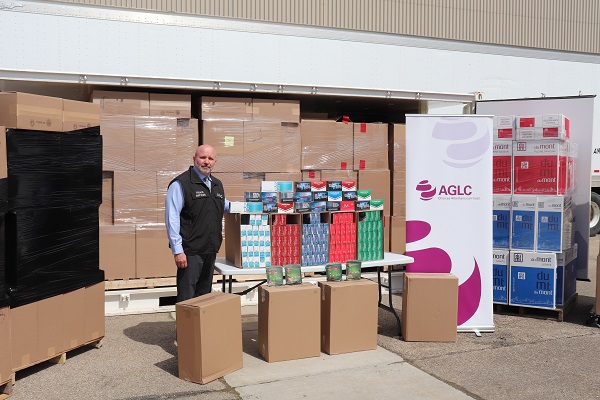
 Alberta1 day ago
Alberta1 day ago30 million contraband cigarettes valued at $25 million dollars seized in Alberta
-
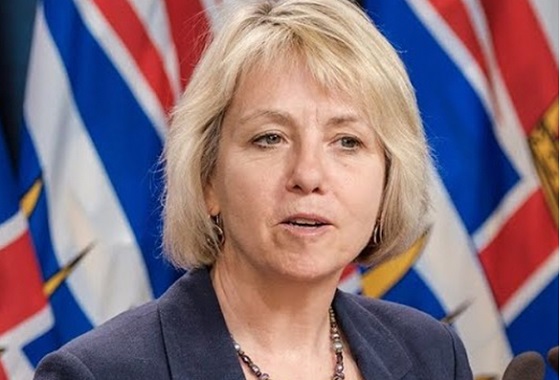
 COVID-191 day ago
COVID-191 day agoHealthcare workers obtain partial win against Bonnie Henry in BC Supreme Court
-

 COVID-191 day ago
COVID-191 day agoElon Musk-backed doctor critical of COVID response vows appeal after court sides with medical board
-
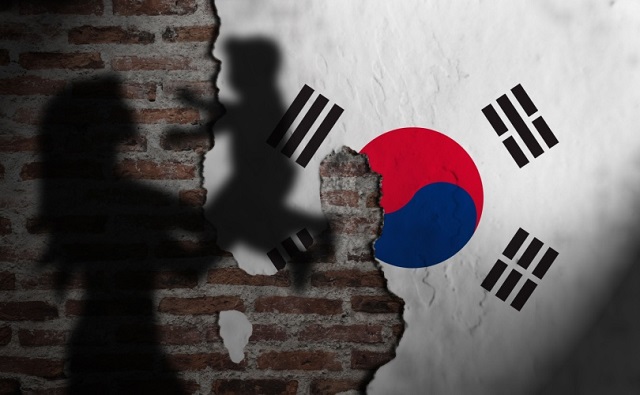
 Health1 day ago
Health1 day agoSouth Korean president declares low birth rate a ‘national emergency,’ plans new ministry to address it
-
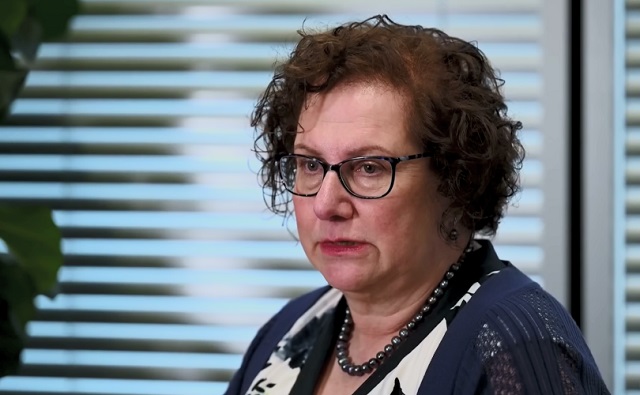
 Health1 day ago
Health1 day agoUK pediatrician who led review of child ‘transitions’ says US medical groups ‘misleading the public’
-

 Economy2 days ago
Economy2 days agoBiden signs suicidal ‘No Coal’ pact, while rest of world builds 1,000 new plants


